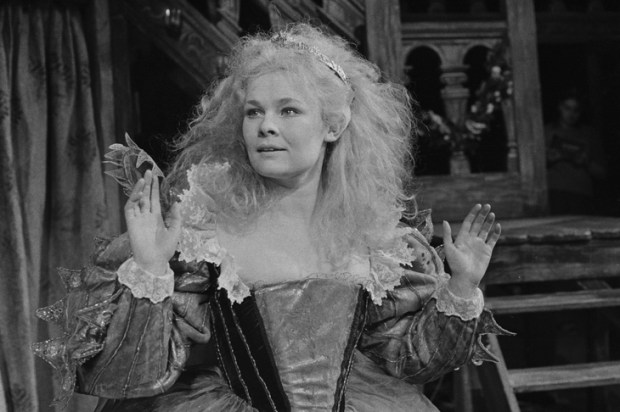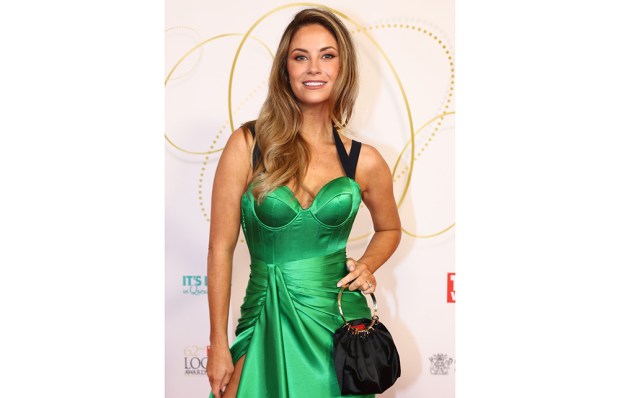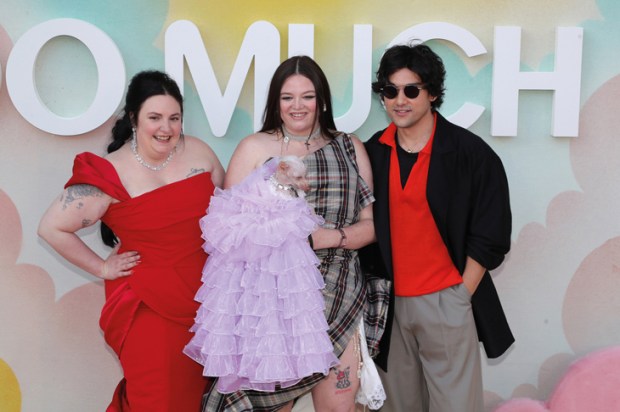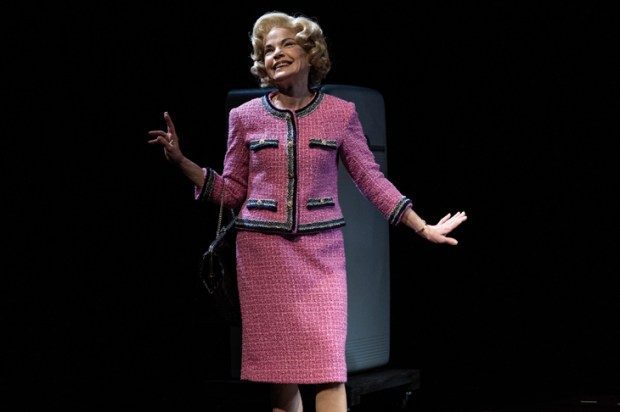Dickens’ A Christmas Carol has been with us for as long as we can remember. The story of the unlovely old miser Ebenezer Scrooge and the way he comes good and embraces the spirit of Christmas, lavishing his love and bounty on the Cratchit family and Tiny Tim is something we’re liable to experience in early childhood as the supreme wisdom of values greater than the world’s and it’s a bit astonishing that this new version directed in the first instance by the great Matthew Warchus – the man who can jump from Ralph Fiennes and Sarah Snook doing Ibsen’s The Master Builder to Tim Minchin’s Matilda the Musical which he did with extraordinary verve on stage and has now made into a film with Emma Thompson as that towering horror Miss Trunchbull – should be such a scintillating show with David Wenham as the curmudgeon turned Christian but it is. Everything about this piece of theatre is an enchantment. Wenham uses his silvery voice first as the medium for all that meanness then as the instrument for joy and beauty and human kindness. Even with Christmas coming at us (as it always does) like a runaway train this Christmas Carol is not just a thing of comfort and joy, it will tickle and move everyone who sees it, not least because of the sheer originality with which one of our foundation myths is brought to sparkling life. It helps that Matthew Warchus and his very able associate Jamie Manton (who has re-staged it here) is working with a script by Jack Thorne who collaborated with J.K. Rowling on Harry Potter and the Cursed Child and who is by way of being an adaptor of genius. The production succeeds in being at once minimalist and spectacular. We have what is effectively a Victorianised Greek chorus filling us in on the storyline while integrating the great parable of Scrooge discovering his heart into a world of carols and sacred music: there’s a discernible motet at one point in the midst of all those heartwarming songs of joy that soothe the soul. At the same time the production uses a series of frame doors that pop up as clear visual suggestions of how closed Scrooge’s mind is. The ghosts are done superbly and surprisingly with Debra Lawrence as the Ghost of Christmas Past and Samantha Morley as the Ghost of Christmas Present. The effect is significantly different from the hallowed variants we know from every Christmas Carol down the arches of the years and this tallies with the good sense of casting Wenham, one of nature’s leading men, in the role of the old creep who turns by some force beyond magic into a saint. The original London Scrooge in this version was Rhys Ifans who has been lending his lustre to House of the Dragon and it is integral to this version of Dickens’ story that Scrooge have a starry quality rather than the stylised demeanour of a character actor: in that respect it’s a bit more like the ancient recording with Ronald Colman than the characterisation of Scrooge from, say, that old comic actor Alistair Sim.
On the other hand, when Wenham’s Scrooge has his transformation the humour does take over and we get the chorus acting like firefighters of bounty tossing down all sorts of food and goodies from Foodbank, the hunger relief organisation, each of them marked with their place of origin and coming with jokes that tally. What else would play on a small goods donation from a famous source than a joke about ‘is Don, is good’. And there are endless variations about the origins of hot pies or whatever. It works very well as an overtly jokey step into the world of corny funmaking which re-enacts the spirit of Christmas with a facetiousness that is at the same time deeply, not trivially, connected with the idea of charity in the profoundest sense. What was it St Paul said? ‘If I have not love I count for nothing.’ This emphasis led with complete naturalness into the speech David Wenham gave at the end of the show about the inequity of wealth and the terrible way this could impact on children. It was a lovely night in the theatre and one that touched the heart in a way deeply consonant with the spirit of Christmas Dickens conjured up. As is usual (and is in fact a matter of law) three young actors play the pivotal and poignant role of Tiny Tim, two of them girls. On opening night he was played by a boy, Theo Watson-Bonnice, who would these days perhaps be described as ‘height-challenged’ but this emphasis on disability did not come across in this context as diversity of the modish canting kind. It’s served, on the contrary, as a reminder of what such civilisation as we have tells us about human kindness. There was no need for any bah humbug in response to it.
Another, in fact breathtaking, aspect of this production was the way the chorus combined their singing with quite a bit of handbell ringing. This was there all evening through all the echoic sacred music as well as the carols of jollity and wonder. The music in fact had a rapt and thematic intensity about it. There was such a hush, such a sense of the supreme value of the good, when the chorus using nothing but the handbells did their rendition of ‘Silent Night’.
Part of the originality of this very imaginative re-animation of Dickens’ great Christmas story is the way it puts everything in the broadest possible context and this wordless ‘Silent Night’ was extraordinarily beautiful and it seemed entirely appropriate that we should end with the invocation of a mystery beyond words.
It was a lustrous first night and Sigrid Thornton was there to cheer on her old co-star from SeaChange. And the kids were struck by young former Neighbours stars.
And so they should be because A Christmas Carol is a great reminder of how Dickens’ skills as a popular storyteller were not separate from his staggering gifts as an artist. He is, after all, the greatest master of dialogue in English. And for all his cartoonery he was a writer who could create legends.
Got something to add? Join the discussion and comment below.
You might disagree with half of it, but you’ll enjoy reading all of it. Try your first month for free, then just $2 a week for the remainder of your first year.













